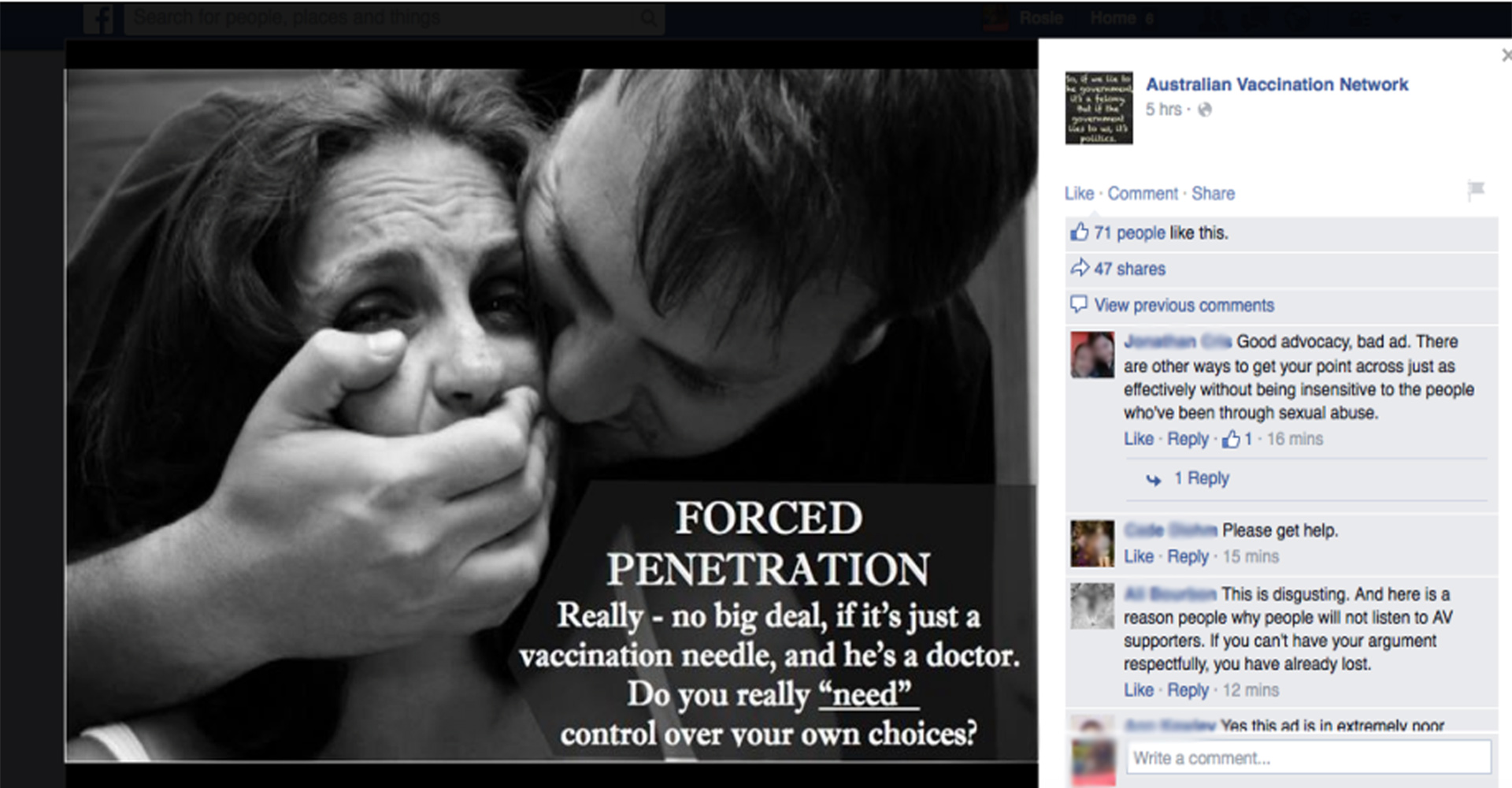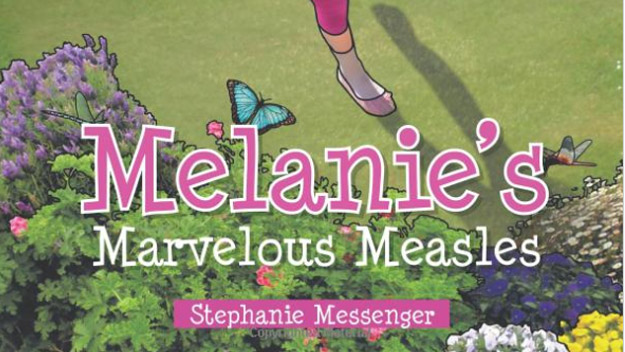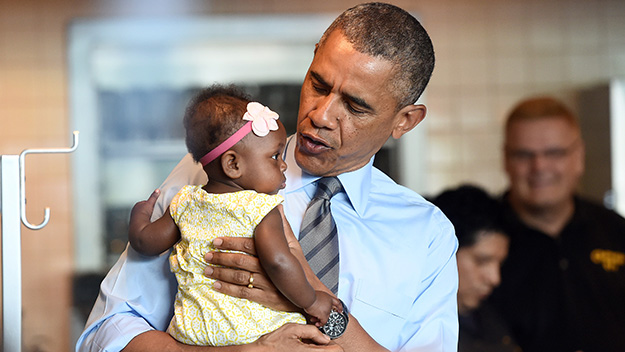Controversial organisation, the Australian Vaccination-Skeptic Network’s (AVSNI), equated pro-vaccinators to those who are pro-rape in an image shared on their social media pages earlier today.
The provocative image, part of an anti-vaccination campaign, is of a woman in distress as a man covers her mouth.
*”FORCED PENETRATION: Really- no big deal, if it’s just a vaccination needle, and he’s a doctor. Do you really ‘need’ control over your own choices?” the caption reads.
The latest scare campaign has been met with fierce backlash. Commenters have called this a ‘new low’ for the AVSNI, who have long been described as a provider of “misleading, inaccurate, and deceptive” vaccination information by the New South Wales Health Care Complaints Commission.
Women’s Rights Groups have also condemned the image choice as trivialising the very real issue of violence against women epidemic in Australian society.
The criticism was dismissed by the AVSNI page administrators.
“This post isn’t tasteless – it is honest,” they wrote. “What truly IS tasteless is our elected government trying to tell us that we have to vaccinate our children even if we don’t believe it is best for their health.”
The anti-immunisation group has long claimed that vaccines cause autism and that vaccination is a “personal choice”. Their self-proclaimed aim is to “empower people to make informed choices because every issue has two sides,” despite scientific consensus that there is no ‘other side’.
The influence the group wields has led to government intervention in the past. The organisation were previously called the Australian Vaccination Network but had this title revoked by the Administrative Decisions Tribunal in late 2013 for misleading new parents and causing them to make health decisions for their children that put the wider community at risk.
Disclaimer: The Weekly has since learned the image has been removed from the organisation’s Facebook following a barrage of criticism from the online community.


